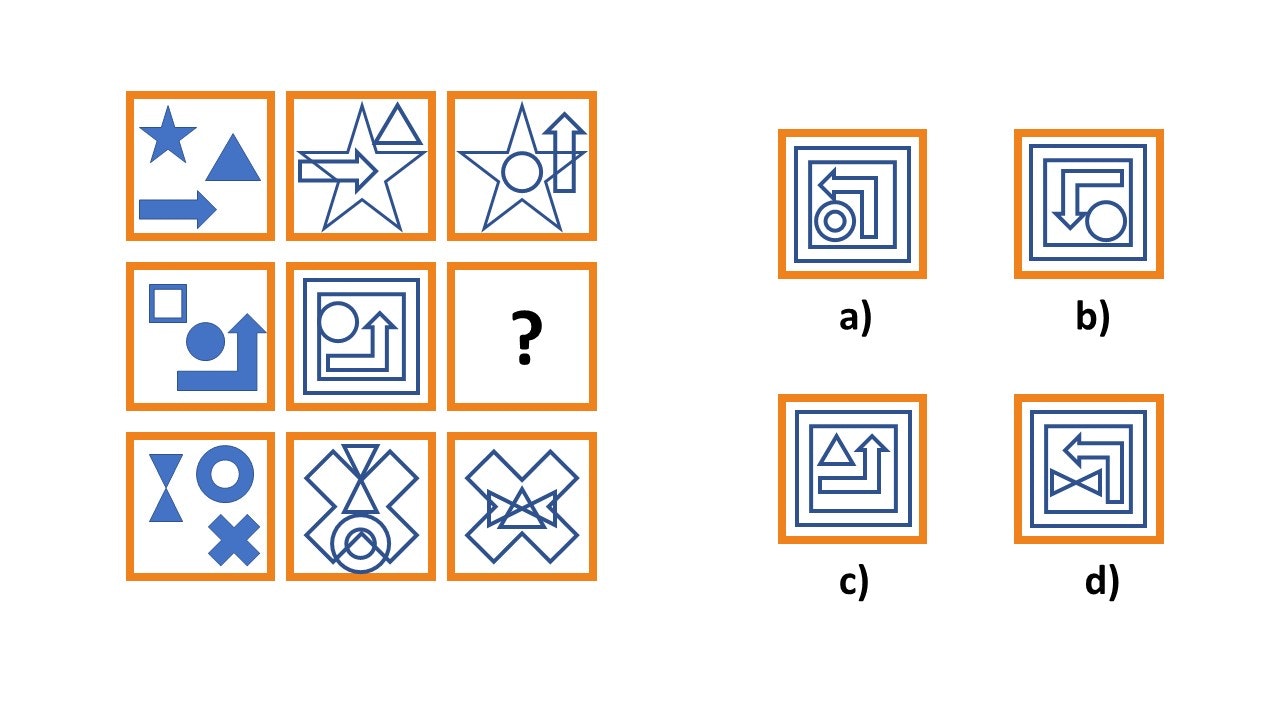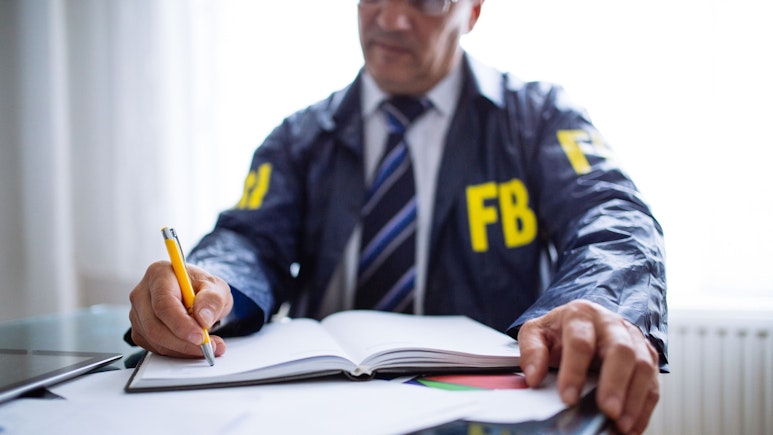The FBI Agent Test: Guide & Tips 2025
Updated November 18, 2023
- What Is the FBI Agent Test?
- FBI Special Agent Prerequisites
- FBI Agent Test - Desired Characteristics and Experience
- How Many Phases Are There for the FBI Agent Test?
empty
empty
- What Is the FBI Phase I Test and How Can I Prepare for It in 2025?
empty
empty
empty
empty
empty
empty
- What Is the FBI Phase II Test and How Can I Prepare for It in 2025?
- FBI Agent Test - General Tips
- Final Thoughts
What Is the FBI Agent Test?
Becoming an FBI special agent is a difficult, time-consuming process that involves many steps.
This is only to be expected if you want to work for one of the most prestigious law enforcement agencies in the world.
The application and recruitment procedure includes rigorous testing to ensure that the applicants have the personality and aptitude needed for the role.
FBI Special Agent Prerequisites
Becoming an FBI agent requires patience and tenacity as it is a long process.
There are certain requirements that must be met before any application is accepted, including:
- US citizenship or a citizen of the Northern Mariana Islands
- Aged 23 to 37 (with some age exemptions for veterans)
- Valid driver’s license
- No criminal record, drug use or poor financial history
- At least a bachelor’s degree plus work experience
FBI Agent Test - Desired Characteristics and Experience
Aside from the application prerequisites, the FBI recruits based on current operational need, as well as critical skills such as:
- Intelligence experience
- Law enforcement experience
- Military experience
- Physical science experience
- Language proficiency
- Financial skills
- Engineering skills
There are different entry routes for those who have completed specific degree programs, such as computer science or languages, and the diversified route is aimed at those with a BA or BSc in any discipline, as well as those from other law enforcement or other investigative backgrounds.
How Many Phases Are There for the FBI Agent Test?
The FBI tests are split into two distinct sections, Phase I and Phase II.
The FBI has partnered with PSI Services, a well-established test publisher that administers over 30 million tests a year across 160 countries for several well-known, global employers.
Practice FBI Test with JobTestPrep
Phase I
Phase I consists of five assessments that are taken in person in one session at a PSI assessment center.
Test centers for this phase are available throughout the US.
The assessments take three hours to complete, and include:
- Logic-based reasoning
- Figural reasoning
- Personality assessment
- Preferences and interests
- Situational judgment
If successful at Phase I, applicants are invited to a ‘meet and greet’. Following this, a full assessment of test results, data from the meet and greet, and a comparison of attributes that fit the FBI core competencies takes place for each candidate.
If deemed ‘competitive’, the applicant will receive an invite to Phase II.
Prepare for the Phase I with JobTestPrep
Phase II
Phase II has two sections:
- Written test
- In-person structured interview
The written test, which takes place at a PSI test center, is an assessment of the applicant’s ability to analyze data and compile reports.
The second section is a structured interview at one of the nine regional offices across the US, which are based in major cities near airports.
It is worth noting that approximately 95% of applicants for roles in the FBI are unsuccessful, and the tests that are used in the recruitment process are designed to ensure that only the absolute best candidates are taken through to the FBI Academy to complete their training.
What Is the FBI Phase I Test and How Can I Prepare for It in 2025?
Applicants invited to take part in the Phase I tests will receive an email from the PSI Services team, asking candidates to choose their test date, time and location.
In the test center, there are PSI staff administering the assessments.
The test is computerized and each one is designed to look at a different facet of ability, from critical thinking to reasoning.
Logic-Based Reasoning
In this section, there are 11 questions. Candidates are presented with a paragraph or a few sentences containing information and have to decide what inferences can be made to reach a logical conclusion.
Answers are provided in a multiple-choice format.
Top Tip for Logic-Based Reasoning
The best way to deal with logic-based questions is to read each one carefully and assess all the information given before looking for a conclusion.
Be sure to only use the information given to answer the question, not any prior knowledge.
Example Logic-Based Reasoning Question
“All students that study history also study sociology.”
Based on the above statement, which of the following statements are also true?
a) All sociology students also study history
b) No sociology students study art
c) Some sociology students also study history
Figural Reasoning
This part of the assessment looks at how a candidate solves problems by looking for patterns.
There are nine questions in this section, and each one is presented as an incomplete image containing eight shapes, images or drawings inside a box with three columns and three rows.
This is a tricky one, as the pattern of the images presented can work through the rows or through the columns. There is a time constraint to consider, so decisions have to be made quickly.
The final picture in the box is the one that you have to find by discovering the pattern that governs the sequence.
If you need to prepare for a number of different employment tests and want to outsmart the competition, choose a Premium Membership from JobTestPrep.
You will get access to three PrepPacks of your choice, from a database that covers all the major test providers and employers and tailored profession packs.
Top Tip for Figural Reasoning
The patterns involved in these images can be read both across the rows and down the columns, and the pattern might be aligned around the colors, shapes, patterns or number of objects.
Use both the rows and the columns to check your understanding of the pattern before you choose the answer.
Example Figural Reasoning Question

Which shape fills in where there is a question mark?
Personality Assessment
This assessment is aimed at identifying personality traits that the FBI considers necessary to be a successful special agent.
This test presents five pairs of statements on each screen, with a slider in between. You need to use the slider to indicate how closely you align with one or the other statement on the screen – you cannot stay in the middle, but you can demonstrate your level of agreement.
There are 100 statements in this part of the assessment.

Top Tips for the Personality Assessment
This is a difficult test for candidates because it may be that neither statement in the pair is something that you agree with – but this is normal.
It is important to be as honest as possible throughout this assessment.
Example Personality Assessment Question
| I like to spend time with others | Strongly Agree | Agree | Disagree | Strongly Disagree | I am very organized |
|---|
Preferences and Interests
This assessment is visually similar to the personality assessment, with statements and a rating scale instead of a slider.
It is designed to assess your personal attitudes to determine whether you possess the desired dispositional qualities that the FBI recruitment team is looking for.
You need to rate each statement using the scale to demonstrate how much you agree with the statement and how relevant you think it is to you and your preferences.
There are 37 questions in this section.
Top Tips for Preferences and Interests Questions
As with the personality questions, the preferences and interests questions are best answered quickly without dwelling on what they mean.
For your answers to give an accurate picture of your disposition, you need to be honest.
Practice FBI Test with JobTestPrep
Example Preferences and Interests Question
I often feel overwhelmed when in a large group of people.
a) Strongly agree
b) Agree
c) Neither Agree nor Disagree
d) Disagree
e) Strongly Disagree
Situational Judgment
This section is an assessment of your judgment, looking at how you respond in everyday situations, using scenarios that candidates might encounter in a typical work environment.
Each scenario will be presented with five possible response options, and you need to decide which response aligns most truthfully with the way you would deal with the situation.
There are 19 questions in this section.
Top Tips for Situational Judgment Questions
While it might seem prudent to try and answer the questions in a way that you think the FBI recruiters want you to, it is much more important to answer them honestly.
Don’t spend too long trying to pick the ‘right’ answer.
Example Situational Judgment Question
A customer has made a complaint to you about the work of a colleague. The colleague has been having a tough time in their personal life, and you are concerned about the effect this is having on the business.
What action should you take?
a) Speak to their manager about the problems the colleague is having.
b) Take the complaint to the manager of the colleague to ensure that it is dealt with.
c) Take the colleague to one side and see if there is anything you can do to support them.
d) Try and deal with the complaint yourself to take the pressure off your colleague.
e) Pass the complaining customer off to your colleague to deal with as it is their problem.
Completing Phase I
Once you have completed the tests, your score will be calculated and compared against a norm group to assess your suitability for the role of special agent.
The score is not broken down into specific sections, so it is in your best interest to practice beforehand those areas you are less confident in.
If you do not reach the desired score, your application will not be taken further.
However, in some circumstances, you can retake the test at a later date (not less than six months later).
What Is the FBI Phase II Test and How Can I Prepare for It in 2025?
The Phase II test also takes place in a local PSI test center.
If you achieve the desired result from the Phase I tests, alongside the information gained at the meet and greet, to match the FBI core competencies, you will receive an email invite from PSI to book the first part of the Phase II test.
This first part is a timed written assessment.
Candidates are presented with detailed instructions and data, and will need to analyze those data in order to write two detailed reports.
This assessment needs to be well written and comprehensive, answering the given brief and following the instructions.
The reports are usually about a fictional scenario, and they need to be grammatically accurate, with correct spelling and punctuation, because the computer program used in the test center does not have spell-check.
It is difficult to effectively practice for the Phase II test, but understanding verbal reasoning, deductive reasoning, inductive reasoning and comprehension will give you the best chance of succeeding.
Your response needs to be high-level, with convincing arguments and a well-thought-out discussion. Refer back to the data given and remember to be clear and concise in your arguments, following a logical structure so it is simple to read and understand.
The second part of the Phase II test is a structured interview.
This is given by a panel of three special agents and has a performance-based interview format with scoring criteria used to measure competencies.
FBI Agent Test - General Tips
Both tests are taken in person at your local PSI testing center. You will need to bring your driver’s license as photographic ID (or separate photo ID if there isn’t a picture on your license).
Arrive at the test center at least 15 minutes before your start time to ensure that you have time to prepare.
There are a few items that you cannot bring to the test center, such as:
- Calculators and other electronics
- Cellphones
- Firearms
- Backpacks, briefcases or purses
- Reference materials, books or papers
- Pens and pencils
The dress code for the test center is comfortable and casual, but suitable for the office. However, to make a good impression at the meet and greet and the structured interview, business attire is more appropriate.
As the invitations to these tests are sent via email, by PSI on behalf of the FBI, it is a good idea to regularly check your email inbox and maybe your spam folder too.
There is a time limit for the tests to be booked once the emails are sent – 21 days for the Phase I test, and 14 days for Phase II.
The Phase I test lasts three hours, while the written part of the Phase II test lasts 2.5 hours.
Practicing using basic aptitude tests, like logical reasoning, inductive reasoning and verbal reasoning tests, will help FBI test candidates to perform better at both Phase I and Phase II – and further into their career as well.
Practice FBI Test with JobTestPrep
Final Thoughts
The FBI special agent tests are rigorous and difficult to pass, ensuring that only the most suitable candidates are recruited.
If you are interested in becoming an FBI special agent, thoroughly familiarize yourself with the testing process and what is being looked for at each stage. Good preparation will take you one step closer to achieving your goal.




